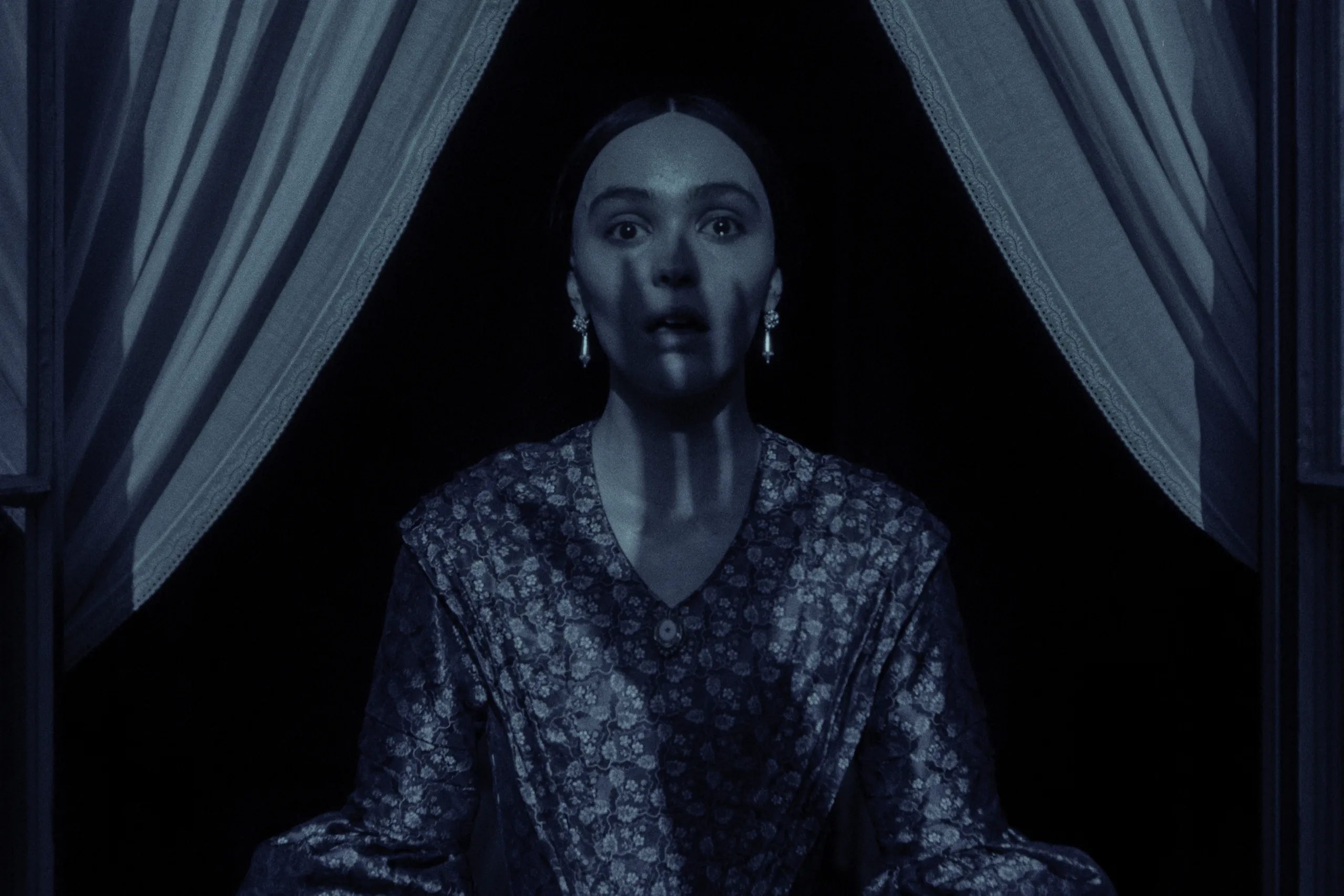
Robert Eggers’ Gothic horror thriller Nosferatu is now in theaters, offering a fresh take on a timeless classic. Starring Bill Skarsgård, Lily-Rose Depp, and Nicholas Hoult, the film revisits the eerie tale of obsession and terror that first captivated audiences over a century ago. But how does this reimagining of the iconic story fare with critics?
A remake of F.W. Murnau’s 1922 silent film classic, Nosferatu made its theatrical debut on Christmas Day. The official logline describes it as “a Gothic tale of obsession between a haunted young woman and the terrifying vampire infatuated with her, causing untold horror in its wake.” Directed and written by Robert Eggers, the film draws inspiration from Henrik Galeen’s original screenplay and Bram Stoker’s legendary novel, Dracula.
The Story and Cast
At the heart of Nosferatu is Count Orlok, played by Bill Skarsgård, a decrepit vampire driven by an insatiable obsession with Ellen Hutter (Lily-Rose Depp). Ellen is the wife of Thomas Hutter (Nicholas Hoult), a real estate agent dispatched to Transylvania to finalize a property deal with Orlok. This ill-fated transaction sets off a chain of horrific events as Orlok’s sinister presence wreaks havoc.
The film boasts an impressive supporting cast, including Aaron Taylor-Johnson, Emma Corrin, Simon McBurney, Ralph Ineson, and Willem Dafoe. Rated R, Nosferatu delivers a chilling cinematic experience enriched by Eggers’ atmospheric direction and visual storytelling.
Critical Reception
The reception to Eggers’ Nosferatu has been largely positive, with an 86% “Fresh” rating on Rotten Tomatoes based on 180 reviews. The Critics Consensus on RT describes the film as “marvelously orchestrated” and “equal parts repulsive and seductive.” On Rotten Tomatoes’ Popcornmeter, which gauges audience reactions, the film holds a solid 81% approval rating, indicating that it has resonated with viewers.
Praise from Critics
David Fear of Rolling Stone is among the critics who have given Nosferatu a glowing review. He writes, “You may not have asked for a new version of this near-perfect silent-film classic. You also couldn’t ask for a better artist to give this generation of Goths a nightmare to call their own.”
Nick Schager’s review is equally enthusiastic, describing the film as “a monument to dark desire and the corruption it breeds, and a masterpiece of unholy terror that instantly takes its place alongside the genre’s hallowed greats.” BBC critic Nicholas Barber commends the film’s depth, noting, “What really separates Eggers’ Nosferatu from the flock is how deeply it explores the images and themes of vampire lore. There aren’t many Dracula films that give you so much to sink your teeth into.”
Diverging Opinions
Despite its acclaim, Nosferatu has not been without detractors. Richard Brody of The New Yorker criticizes the film’s overly meticulous design, stating, “The very coherence of his Nosferatu is what makes it drag. The images aren’t only stripped of superfluities; they’re hermetically sealed off from anything that could impinge from offscreen … They feel designed, deadeningly, to mean just one thing.”
Richard Lawson of Vanity Fair echoes this sentiment, arguing that the film lacks genuine scares and humanity. “Nothing is particularly scary, because most of the movie’s humanity is drowned out by the relentless churn of Eggers’s visual and aural mood,” he writes. Similarly, Katie Walsh of the Tribune News Service critiques the film for being overly faithful to its source material, calling it “an utterly straight-faced and interminably dull retread.
A Bold Vision
Despite the mixed reviews, Eggers’ Nosferatu stands out as a bold artistic endeavor. Its lush cinematography, meticulous attention to detail, and atmospheric dread reflect Eggers’ unique vision. While some may find its deliberate pacing and adherence to tradition limiting, others celebrate its ability to reimagine a classic for modern audiences.
Whether hailed as a masterpiece or critiqued for its reverence, Nosferatu undeniably leaves a lasting impression. For fans of Gothic horror, it offers a visually stunning and haunting experience—a film that honors its origins while carving out its own place in cinematic history.